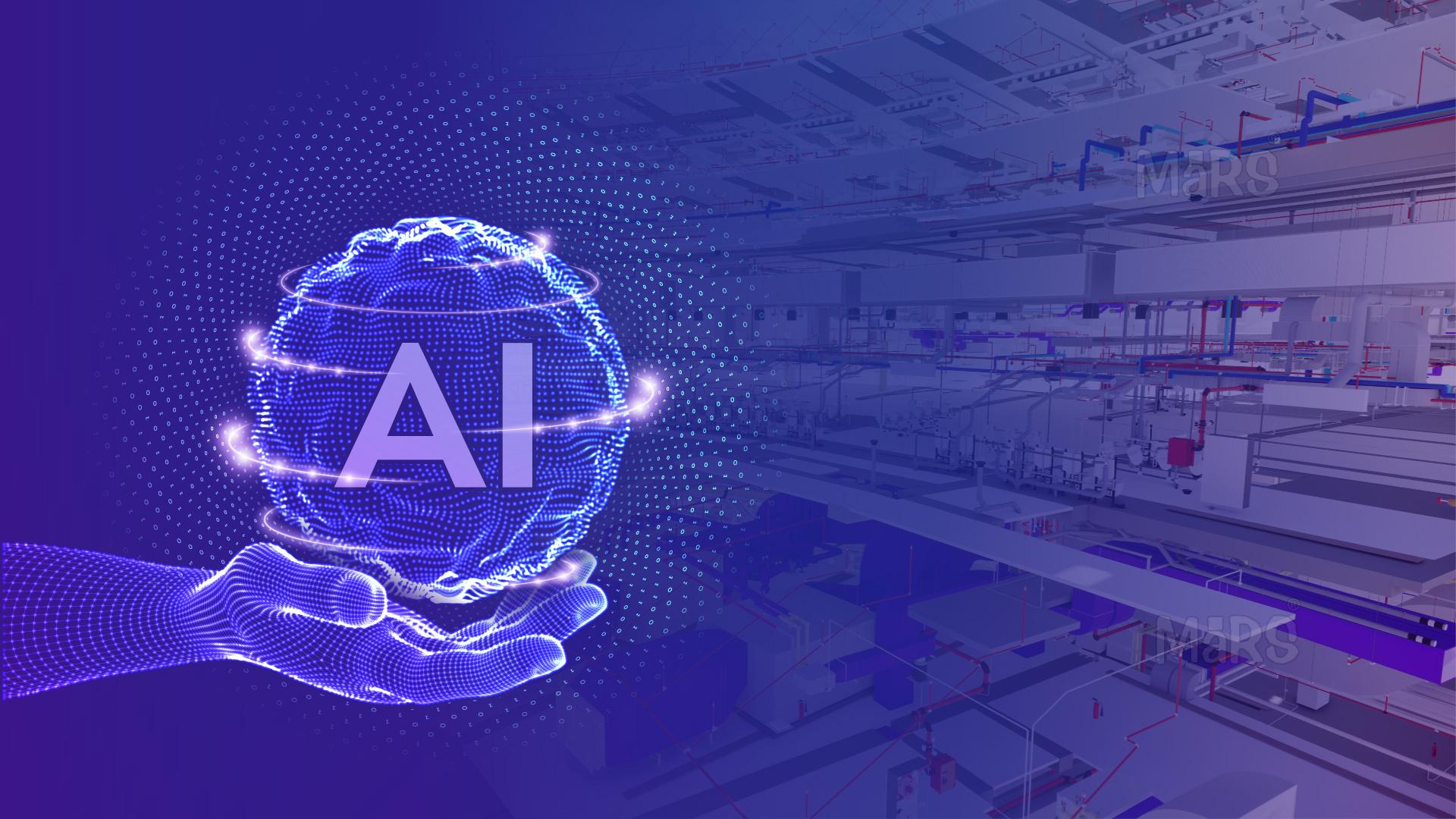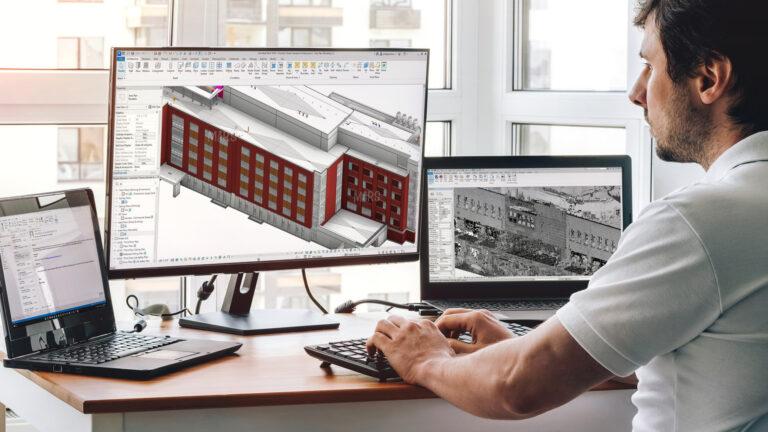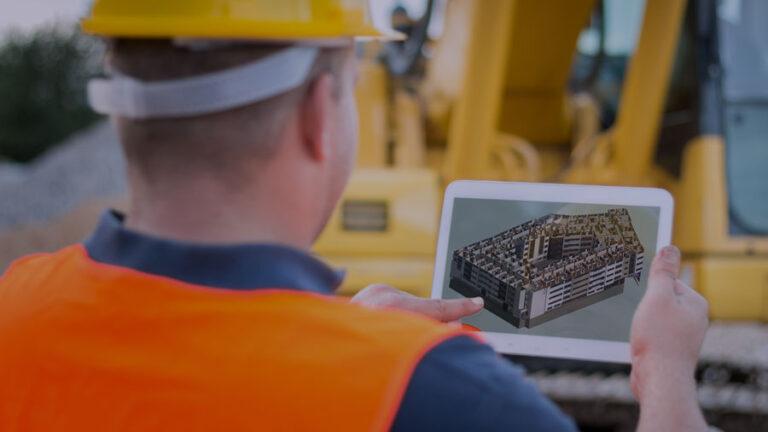The construction industry is on the verge of a new age as a result of digital start-ups developing innovative AI solutions including software and tools that are transforming how businesses develop, organize, and carry out projects.
These forward-thinking start-ups are eradicating many of the issues that have impacted the construction industry for decades, including challenges in gathering and sharing project information, by offering transforming AI solutions.
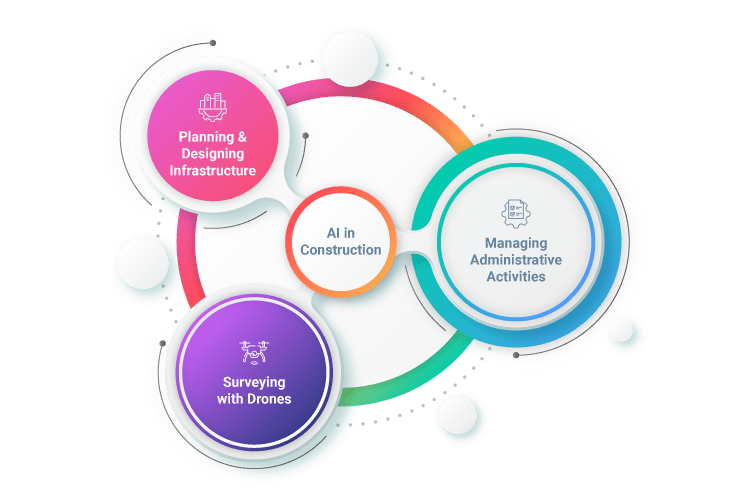
AI is the future of the construction industry. $10 trillion per year is the estimated total worth of the construction industry, while the productivity gap due to lack of digitization is calculated at $1.6 trillion. The rise and successful implementation of AI in the construction industry requires a digital transformation.
A report by McKinsey
Artificial Intelligence and the Construction Industry
Developing intelligent machines to achieve tasks without human interaction and at a faster rate with complete efficacy is known as Artificial Intelligence. Technological advancement is being embraced by the construction industry which is challenging prior standards of business while also presenting numerous opportunities. Artificial intelligence will likely improve efficiency across the whole value chain, from building material production to facility design and management.
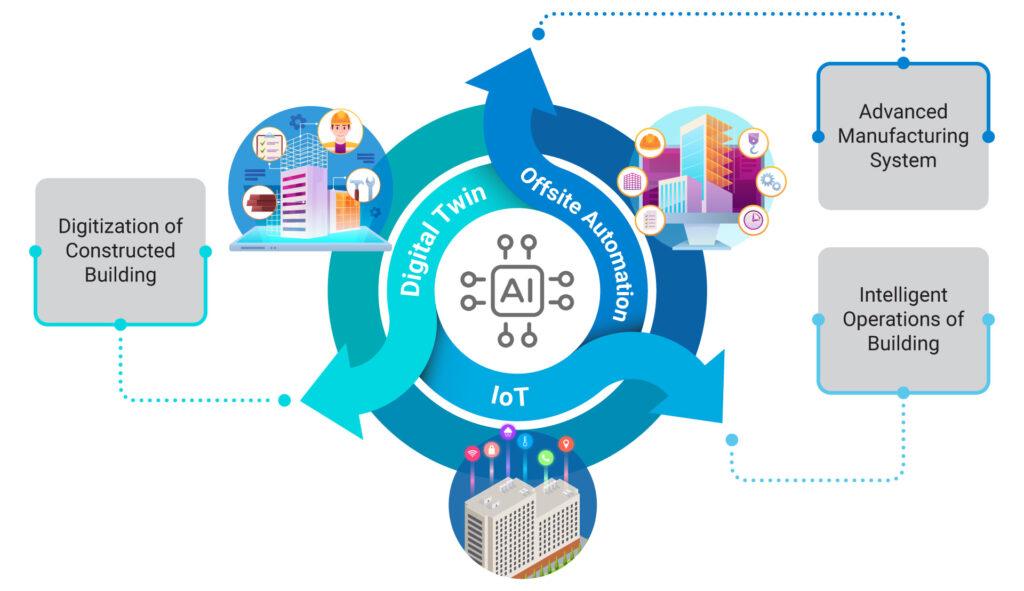
In the planning and designing stage, these developments increase efficiency in terms of both time and money. Companies can monitor job sites for hazards and deal with pressing concerns because of AI’s improved safety, speed, accuracy, and efficiency. Robotic process automation increases building speed and quality, while machine learning optimizes designs for energy efficiency and cost savings.
Current Implementation of AI in the Construction Industry
AI can be implemented in different stages of the project lifecycle, including inception, planning, design, execution, operation and project management. Listed below are a few of the current applications of AI in the construction industry:
1. Improved Building Design
AI-based BIM is assisting experts in the AEC Industry in developing 3D models for effective planning, design, construction, and repair. The iterative approach generates several variations of solutions, improving models until an ideal model is obtained, resulting in an optimal solution.
2. Project Progress and Management
At building sites, AI-powered robots acquire 3D images, which are thereafter cross-checked using BIM-generated data. This aids engineers in managing huge projects, identifying quality defects immediately, and tracking financial and time schedules.
3. Increased Productivity
During the pre-construction phase of the project, automated or semi-automatic bulldozers might be utilized for excavation. These executive tools give high-quality executive tasks by providing thorough instructions on how to operate.
4. Increased Site Safety
Safety dangers, quality issues, delays, and cost overruns are among the risks that construction sites confront. General contractors may monitor and manage risks by leveraging ML and AI technologies, allowing project teams to focus on core functions. AI-based risk analysis enables preventative steps such as optimizing operations, changing employees, and averting failures.
5. Post Construction Maintenance
Building managers can take advantage of AI to monitor post-construction maintenance. The use of AI technologies can give insights into the operation and performance of the construction via sensors and wireless devices.
AI Adoption in the Construction Industry
Given the numerous benefits, the construction industry should use AI across the project lifecycle. However, the application of AI is still in its early phases, and research gaps require being bridged. Since AI is still in its conceptual phase, the industry stands behind the manufacturing and transportation industries in terms of adoption.
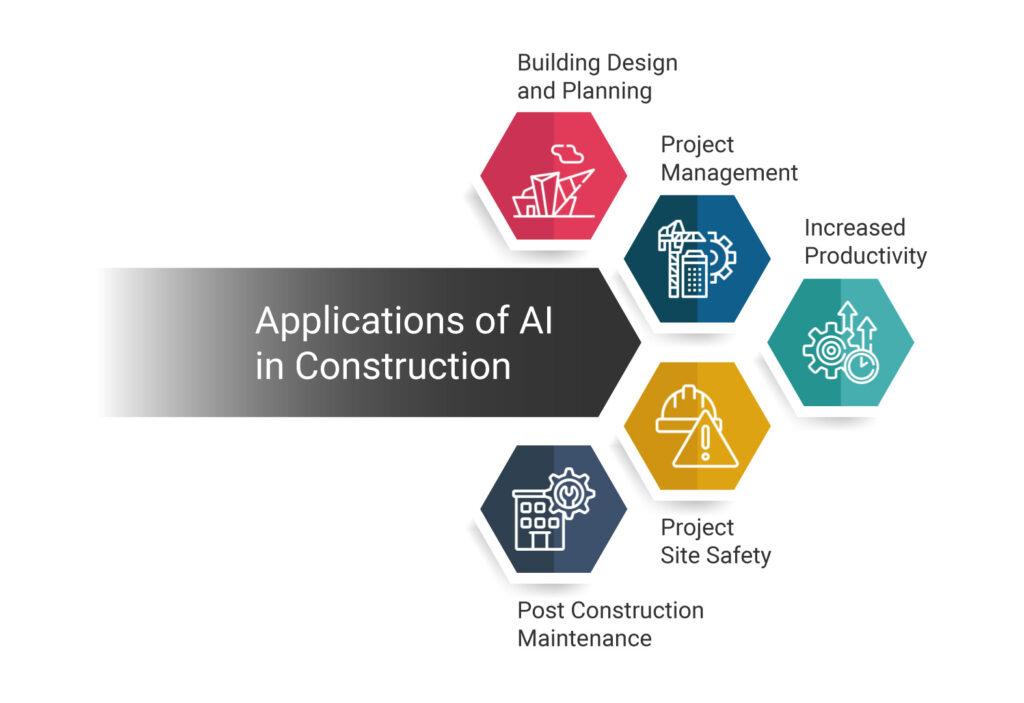
Challenges in Construction Industry AI Adoption:
- Fragmented Industry with missing data link: AI is critical in building sites for adapting to changing circumstances, but traditional approaches are prioritized due to risk and budgetary implications. Transitioning to AI necessitates appropriate design, management, labor practices, transparent processes for data sharing and shared interests among project disciplines.
- High initial implementation and running costs: AI technology in the construction industry can be costly due to high upfront expenses for precise data and ongoing R&D and application investment. Not all companies can afford these initial expenditures and must evaluate the possibility of incorporating AI into their projects. AI is projected to become more inexpensive for smaller enterprises as it grows in popularity.
- Project Individuality and Complexity: The construction industry faces obstacles in implementing AI technologies due to the complexity and the individuality of the projects, and also the non-standardized work procedures, which restrict automation efficiency while implementing the technology in an unorganized setting such as the construction industry.
Conclusion
After the above analysis, it can be concluded that technological advancement is being embraced by the construction industry which is challenging prior standards of business while also presenting numerous opportunities. However, it is necessary to resolve data issues, project uniqueness, and cost limits. Companies that embrace artificial intelligence and overcome these obstacles will prosper in a competitive, rapidly increasing market, ensuring better, safer, and more sustainable construction.

